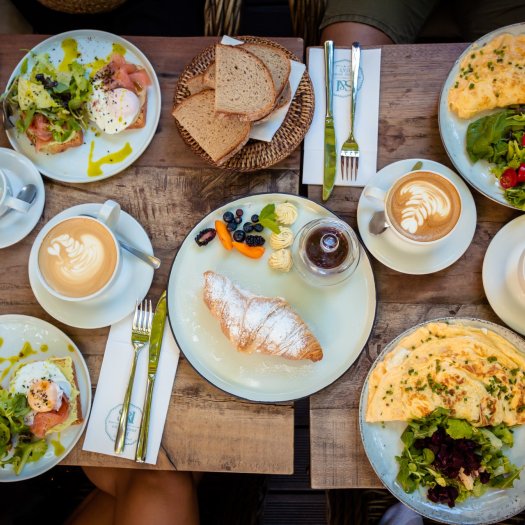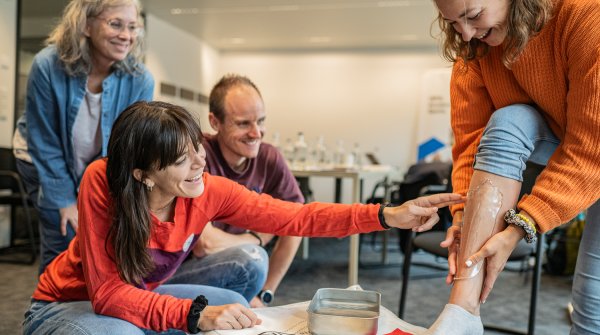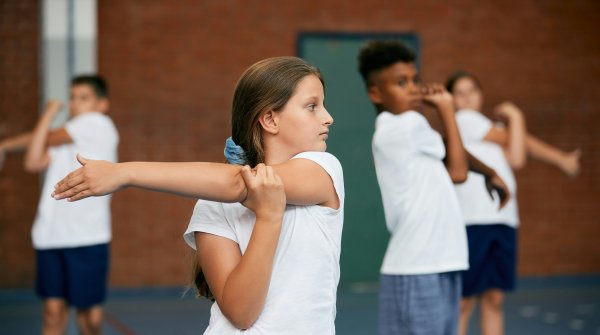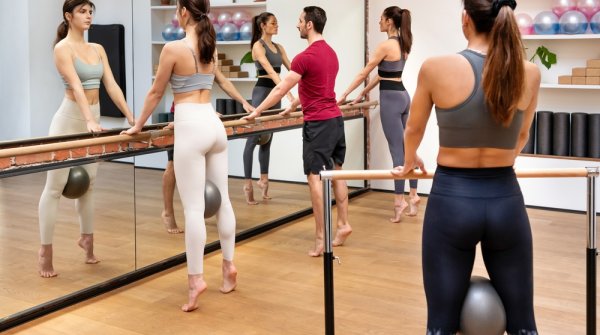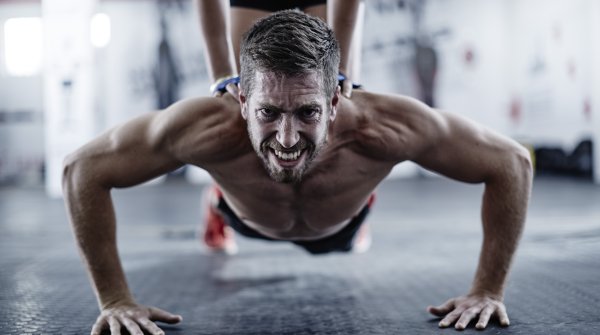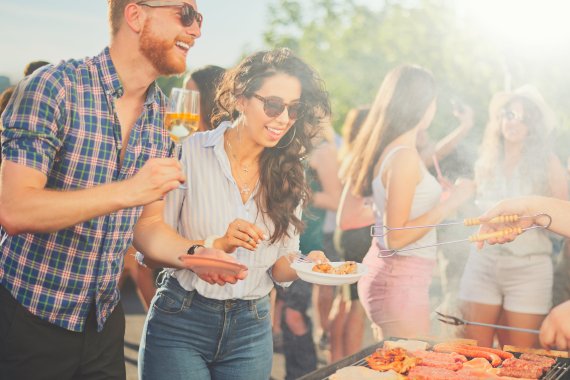
In the blazing summer heat, would you rather have a cold soup or smoothies than a full, hot meal? What seems logical at first glance is a fallacy. Because the lighter diet does not automatically make it easier for your own body to get through the heat. On the contrary: heating up cold food during digestion costs the body additional energy.
Although the body temperature also rises with larger, protein-rich meals, the feeling of satiety lasts longer. And: Particularly for old or ill people, the restriction to only light food would even be dangerous. They need the nutrients of the food pyramid, not malnutrition.

When hunger pangs strike in the evening, it doesn't have to be a showstopper for your own diet plans. Because even in the evening hours, the credo applies: If you consume more calories than you eat, you lose weight. It depends rather on what comes on the plate. An extensive, but also balanced dinner? No problem! A bag of chips on the couch, on the other hand, is just as unhealthy in the evening as it is in the morning. And fatty snacks or alcohol shortly before bedtime impair the quality of sleep.
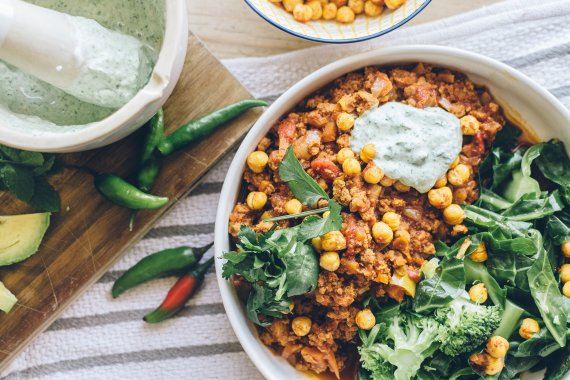
The reservations about vegan and vegetarian nutrition are still great in many places. The argument against veganism and vegetarianism is the supposed lack of proteins and amino acids without meat or other animal products. And actually it would need for the protein content of a portion meat of approximately 200 grams according to the Federal center for nutrition stately 500 grams Tofu. However there are numerous further vegan protein sources. If you consume legumes such as peas, beans or lentils or soy products, quinoa and nuts several times a week, you cover your body's protein needs in a purely plant-based way. Tempeh, seitan, oats, nuts and plant seeds are also healthy sources of nutrients.
For vitamin B12, however, the DGE actually warns of the risk of nutrient deficiency in vegan diets, since according to current knowledge this can only be utilized by the human body from animal products. Thanks to food supplements Veganer*innen can take however also Vitamin B12 sufficiently to itself - and do this also. According to a study of the DGE under children and young people also the veganen children showed a Vitamin B12 supply in the normal range, exactly because 88 per cent supplementieren as recommended. Who thinks about vegan life-style, should inform thus about possible Supplemente. Then nutrition without nutrient deficiency is also possible without animal products.

Coffee addicts can breathe a sigh of relief: even in summer, there's nothing to be said against one to four cups of coffee a day. Contrary to popular belief, coffee does not dehydrate the body. On the contrary, daily coffee consumption can be added to the body's fluid balance and, in moderation and without large amounts of milk and sugar, even prevents cardiovascular disease or type 2 diabetes, according to the diabetes information portal of the German Federal Center for Health Education. Exception: pregnant women should avoid coffee and other caffeinated beverages.
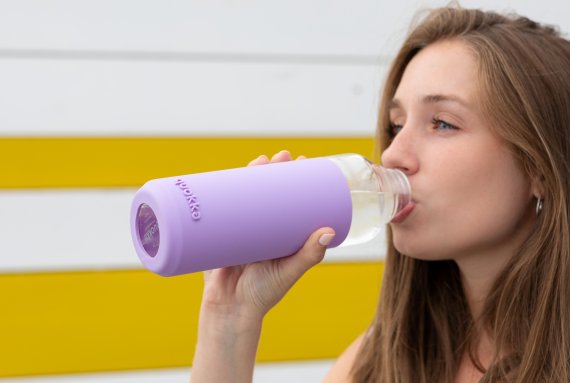
The German Nutrition Society recommends drinking about 1.5 liters a day - preferably water or other unsweetened beverages such as herbal and fruit teas or spritzers with at least two-thirds water content. In the case of heat, pronounced cold, diarrhea or fever, more is strongly recommended. However, even with water, the dose makes the poison. People can excrete up to one liter per hour through their kidneys. However, those who drink extremely much, and by that we really mean EXTREMELY much, risk so-called "water intoxication". This manifests itself in confusion and nausea, but in its strongest form can even lead to water retention in the brain or coma. However, an adult would have to drink around six liters of water in a short time for this to happen. Caution, on the other hand, is advised for small children and infants. Because their kidneys are not yet fully developed, they cannot process larger quantities of water quickly enough. Infants under six months of age should therefore not drink any water at all, according to the German Federal Center for Nutrition.
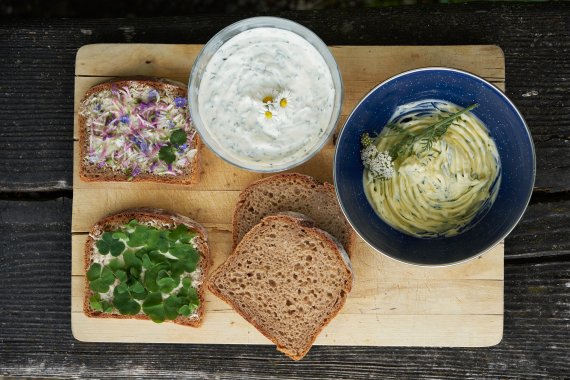
The Internet is bursting with low-carb diets to lose weight. The general promise: If you give up carbohydrates, you'll lose weight healthily. But it's not quite that simple. Complex carbohydrates from whole-grain products in particular actually help you lose weight: They are digested much more slowly and therefore keep you full longer. This prevents cravings for a snack and helps keep the calorie balance under control with the recommended three main meals of the day. In this way, whole-grain cereal products even help to prevent a diet from degenerating into starvation.
But beware: refined carbohydrates such as those in white flour products or light pasta can be broken down more quickly by the body. The satiety effect is clearly less lasting here. Nevertheless, the rule for losing weight is not: Away with the carbohydrates, but here with refined carbohydrates! In their dietary guidelines, the U.S. health authorities recommend a carbohydrate content of 45 to 65 percent of the daily calorie intake. So if you really want to lose weight, you don't have to give up carbs, but simply consume more calories than you take in. The healthiest solution is therefore to eat smaller but balanced portions.
The world is groaning under inflation and expensive commodity prices. Food prices have also risen. But while it's true that better living conditions for animals and higher-quality meat are reflected in the price of meat, a holistic, healthy diet is often even cheaper than an unhealthy one. "Those who can prepare tasty meals themselves from simple staple foods are clearly at an advantage, also in terms of cost," says Dr. Margareta Büning-Fesel, head of the Federal Center for Nutrition.
If you avoid convenience products and prepare your own food from natural, unprocessed ingredients as far as possible, you know what's in it. While there are also healthy convenience foods, convenience often goes hand in hand with higher sugar, fat or salt content than home-cooked meals. What's more, a British "true cost" study has shown that products that appear cheaper at first glance are more expensive for society, and therefore also for each individual taxpayer, than organic products: Through taxes, duties, health insurance contributions or environmental damage that conventional products cause "hidden".
- ISPO awards
- Mountain sports
- Bike
- Design
- Retail
- Fitness
- Health
- ISPO Job Market
- ISPO Munich
- ISPO Shanghai
- Running
- Brands
- Sustainability
- Olympia
- OutDoor
- Promotion
- Sports Business
- ISPO Textrends
- Triathlon
- Water sports
- Winter sports
- eSports
- SportsTech
- OutDoor by ISPO
- Heroes
- Transformation
- Sport Fashion
- Urban Culture
- Challenges of a CEO
- Trade fairs
- Sports
- Find the Balance
- Product reviews
- Newsletter Exclusive Area
- Magazine
